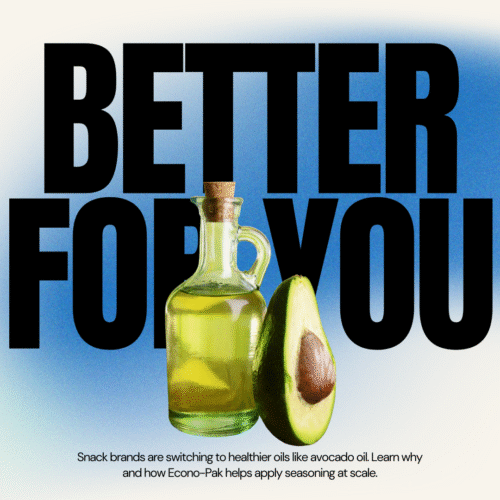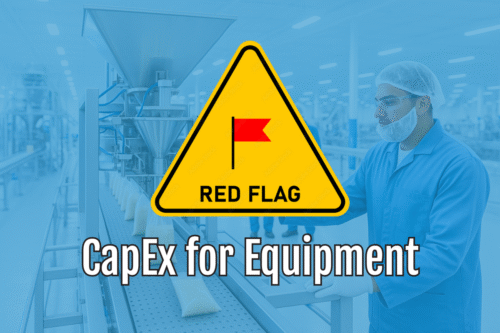What Is the Safe Quality Food Certification?
 Consumers prioritize quality and safety when buying food, and companies that consistently and reliably deliver high-quality products are more likely to gain and keep their business.
Consumers prioritize quality and safety when buying food, and companies that consistently and reliably deliver high-quality products are more likely to gain and keep their business.
One way for organizations to show their commitment to food quality and product integrity is to achieve and maintain the Safe Quality Food Certification. Learn more about the SQF Certification and why working with an SQF-certified business is beneficial.
Purpose of the Safe Quality Food (SQF) Certification
Since 1994, the SQF Certification, of the Safe Quality Food Institute (SQFI), has set forth food industry quality and safety standards measuring companies’ compliance. Its three core tenets are:
- Food safety, or ensuring that food products are safe for consumers to eat or drink
- Quality management, or verifying quality as well as consistency in both products and processes
- Environmental responsibility, or showing dedication to environmental safety and sustainability initiatives like sustainable food packaging
When consumers, as well as contract food manufacturers and packagers, retailers, and related business partners, see the internationally recognized SQF Certification symbol, they tend to have greater faith in both a product’s safety and that brand’s integrity.
Types of Safe Quality Food Certifications
Based on its unique operations and products, a business can receive one of three levels of SQF certification, as follows:
- Level 1: Food Safety Fundamentals. This level defines standard food safety compliance for small-scale manufacturing operations.
- Level 2: Certified Hazard Analysis and Critical Control Points (HACCP) Food Safety Plans. This certification level is more stringent. It’s designed for any organization that wants to implement HACCP standards in their operating processes.
- Level 3: Comprehensive Food Safety and Quality Management System. This is the highest level of SQF Certification, and the one that Econo-Pak maintains. It’s achievable for food industry businesses that thoroughly prioritize food quality and safety.
Each level includes all the requirements and obligations of the preceding level(s).
Benefits of Safe Quality Food Certification
Businesses that undergo certification can establish trust among their consumers and build a reputation for quality that can give them an edge over similar, uncertified companies, particularly in niche or international markets.
When you work with an SQF-certified organization, you can be confident that the company is fully committed to producing quality products and maintaining safe operations. Certified businesses must comply with predetermined, globally recognized standards, which means that the company has established processes in place that meet industry regulations and food safety laws. This ensures that the company consistently maintains and systematically improves the quality and safety of their food products.
Safe Quality Food Certification Process
Obtaining an SQF Certification involves six general steps.
Completing a Pre-Assessment of Operational Readiness
Companies typically start by identifying any gaps between SQF requirements and their current practices. By evaluating their organization and focusing on any areas that need improvement prior to applying for certification, businesses begin with a clear picture of where they stand so they can address any deficiencies.
Choosing an SQF Consultant
While not a requirement, an SQF consultant can help guide a business through the certification process. For small or generally straightforward operations with a clear understanding of SQF requirements, these companies can proceed independently. For large or complex businesses — or those simply wanting to achieve certification as efficiently as possible — a consultant can offer expert support and facilitate the application process.
Designing and Initiating an SQF System
Next, the organization will develop an SQF system that encompasses the food safety and quality processes and policies that will guide its operations, and then incorporate this system into its business. This includes:
- Implementing new procedures and standards surrounding food quality and safety based on the level of SQF Certification a company wishes to achieve
- Creating monitoring and verification systems to internally ensure continued compliance
- Training staff on any new practices
- Documenting these practices
Keeping Records and Documenting Processes
Keeping well-organized records that document adherence ensures operational transparency, which helps boost consumer confidence. Also, documented processes are traceable, enabling companies to trace products from start to finish for better quality assurance. They can take corrective actions, as needed, and their business will be prepared for future audits.
Facility Auditing for Potential Certification
After successfully putting an SQF system into practice, an external auditor will inspect the facility and carry out interviews to evaluate a company’s adherence to the SQF Code. The facility’s safety and quality practices, overall cleanliness, staff, and process documentation will all be under review to ensure that they meet certification qualifications. If everything passes, the company will officially receive SQF Certification.
Committing to Continuous Improvement
SQF compliance doesn’t stop the day a business is awarded certification. It must continue to uphold SQF standards and practices to maintain it, making updates and improvements based on the current SQF Code. Businesses can do this successfully through continued training and documentation, periodic internal audits, and committing to continuous improvement in their safety and quality processes.
Econo-Pak: Your SQF-Certified Partner
Having an SQF Certification underscores a company’s dedication to food safety and communicates that commitment to business partners and customers. To best serve our clients, Econo-Pak maintains a Level 3 Safe Quality Food Certification.
Let's start scaling.
Is your demand outpacing your ability to package your own product? Then consider outsourcing with Econo-Pak.
With over 40 years of experience working with both small brands and Fortune 500 companies, we are capable of handling your specific dry food product.
Get in touch with our team for a fixed-price quote for your project.





Comments are closed